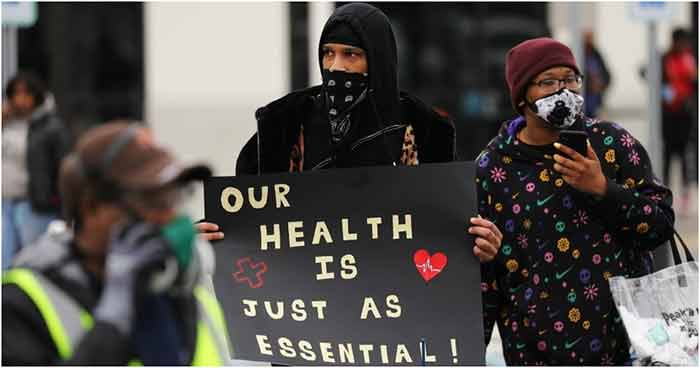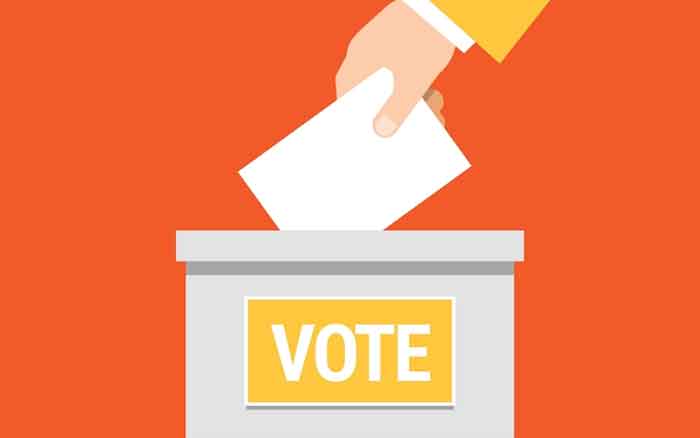
The ending of my Countercurrents article published on April 20, did not sit well with some people including my daughter. The reason being that I had mentioned Amazon CEO Jeff Bezos donating $100 million to nonprofit Feeding America that helps food banks across the country to feed families in need. “Even in ordinary times, food insecurity in American households is an important problem, and unfortunately Covid-19 is amplifying that stress significantly,” wrote Bezos in an Instagram post. I had assured her that I might even write a follow-up article emphasizing that Jeff Bezos was not the topic of my article. Due to the coronavirus pandemic people everywhere are suffering as many have no job, no money, and no food. Bezos giving the donation to an anti-hunger organization is not necessarily a bad thing. Bezos is estimated to have $160 billion USD. Donating $100 million perhaps is a pocket change to him. But it is a gesture nonetheless. I merely acknowledged the gesture. At least, that is what I had thought at the time of writing my previous article. In my self-effacing pieces, I generally try to be objective and do not feel it is really necessary to influence the readers in one way or another. Readers are well informed, and smart enough to draw their own conclusions.
This past Thursday afternoon, I had a series of interesting exchanges in chat window with my daughter. I was interested in knowing why she has trouble with charitable billionaires. Secondly, what is her take on tech tycoons like Jeff Bezos and Bill Gates? My main question to her was: Why is it that most people love to hate such people when they are influenced by variety of factors? Surprisingly, we agreed on many points, especially on parallelism. I am omitting my portion of the conversation and only citing some of my daughter’s views in italic without doing any edits.
They are billionaires whose wealth is based on exploitation of their workers, especially Bezos. Amazon workers are some of the worst treated in the world and Bezos and Amazon have been behind the spread of mass surveillance of the working poor. Philanthropy does not take away from the economic and social abuses Bezos has done in his company.
I would read on Amazon labor unions and organizing and what they have fought for. They (workers) were not even given a break during this crisis and have been put continually in harm’s way. He could have paid for them to have time off and did not. Gates is more dangerous because he is a neocolonialist. He goes into Africa and puts microchips in people’s skin to track them, Testing the poor. They are very dangerous people. Their philanthropy is just a cover. He (Gates) definitely is and it is all very much experimental cover. Powerful people use philanthropy for a lot of bad reasons.
Sounds like your follow-up is going to be a very interesting article! This is the kind of writing I do too. There is a great piece about the dignity of Amazon workers
https://brooklynrail.org/2019/04/art/Brett-Wallace-with-Andreas-Petrossiants
This is my friend Brett who works on Amazon labor rights
Specifically around the bid in Queens. For Amazon
Then the conversation had shifted to Bezos’ private life and I mentioned perhaps Jeff Bezos was trying to change his image after the supermarket tabloid the National Enquirer had published his cheating scandal on the front page in 2019.
I didn’t know Bezos is a cheater…
My views regarding philanthropy in general are not cynical. I believe there is a lot of goodness out there when the fortunate can afford to give away their hard earned money to the needy, and to the deserving. My misgivings are however against the multi billionaires like Dale Carnegie, Bill Gates, Jeff Bezos, and Mark Zuckerberg. They are consumed by corporate greed, and take up philanthropy as a career move. For them when a charity announcement comes, it appears to be a valuable PR tool. For us, it is an opportunity to reflect on a New Age of unprecedented wealth in the hands of self-made tech giants like Bezos and entrepreneurs like Zuckerberg. Sometimes it is important to examine whether this newfound wealth is going to help in shaping the future of America in some major way.
Charities that are dealing with finding the fundamental causes of problems are on a noble mission. Those charities are working diligently to solve some of the biggest health care problems, trying to reduce global poverty, or funding research to find cure for cancer. I feel encouraged to see philanthropic work that are result oriented. Jeff Bezos donating $100 million to Feeding America, however, is a small drop in the bucket. It’s true that to the suffering and hungry people who are affected by the corona pandemic, Bezos’ motives don’t matter. They are just relieved that someone is thinking of them in time of dire need.
Undoubtedly, like many billionaire philanthropists, Bezos is two-faced. Amazon.com is reaping off the consumers by offering interesting deals, and fifty-dollar gift card promotions. It is exploiting its workers who work in the processing centers under horrible conditions, and even gets fired for taking bathroom breaks. Bezos is out there only to help himself into billions more. I wonder, now that he has turned to social projects, does it give him a sense of accomplishment? Is it possible that charity perhaps gives him a way out to relieve him of the moral dilemma of having so much money? Does philanthropy ease his conscience due to ethical conflict? Is it possible that his goal is to reinvent philanthropy? These are all burning questions.
Philanthropy of most corporate magnates is often hyped, as they usually do not disclose where the funds are coming from. It is very possible that the money Bezos is donating to charities comes from Amazon funds designated for philanthropy. Therefore, it will not make a dent into his personal fortune. Though in July 2019, his wife Mackenzie Bezos got $38 bn in divorce settlement.
After having made billions, the wealthy like Gates and Bezos set out to do good in the name of social justice. Their savvy lawyers set up tax avoiding trusts for the ultra-wealthy families in the form of a foundation to do their charitable work. They hire professional staff with great vision who distributes the benefactor’s wealth to worthy causes. Many suspect that these are perhaps just fronts for promoting and distributing products like vaccines that are being developed to treat SARS like virus. Those who receive their generous contributions are only too grateful and are not in a position to question their humanity. At the end of the day, philanthropy for Bezos, the titan of e-commerce, is all about generating positive press for charitable giving. Such publicity has lots of positive benefits. For example, while passing legislation, the US Congress will take all his charitable initiatives into account, and will reward him through different tax breaks. That’s more money for him in the bank.
In 1994, when Jeff Bezos first had launched the Amazon.com as an e-commerce bookseller, most people did not even know who he was or what kind of ambitions he had for his company. He became an overnight sensation after he had bought the Washington Post in 2013, became the owner of Blue Origin (his rocket company), and took Amazon globally in at least 16 different countries as an online retailer. In the past two decades, he had kept on expanding the company, and has conquered online retail, Whole Food, and grocery service. Amazon.com took over the book business literally. Majority of the neighborhood family owned bookstores across America could not compete with the Amazon prices and went out of business. Pioneer mega bookstores such as Borders, Waldenbooks and Barnes & Noble had felt the punishing competitive pressure of Amazon. They had to downsize, and laid off many employees. The bookstore chains Borders and Waldenbooks ultimately closed doors. Barnes and Noble somehow survived.
With attractive deals Amazon lures and preys on the gullible consumers. Some of their offers are downright dishonest. On a side note, since the inception of Amazon, only time I had ordered something from it was a handmade Indian Kantha quilt for 44.99. It was supposed to be free shipping anywhere in the United States. When I looked at the order confirmation, I saw that Amazon had tricked me and added shipping charge anyway. I then called their customer service and asked why they added shipping. The agent gave me some lame excuse about not using their prime card. I was told there was a fine print at the bottom, and I was supposed to see it before placing the order. Though, they then waived the shipping portion since I was a first time buyer. Shipping took forever, and after the shipment arrived, I was doubly disappointed that the Kantha looked nothing like the one they had displayed in the online catalog. Their “best” quality vintage kantha turned out to be very badly stitched. I could have done a much better job stitching together layer upon layer of my mother’s old saris. Since then I never was duped into believing Amazon’s scam ads.
On a serious note, nationwide all the Amazon workers had called in a strike to demand better protection and higher pay during the coronavirus pandemic. “Hundreds of Amazon workers from across the U.S. on Tuesday called in sick to demand better safety standards at the ecommerce giant’s warehouses in the largest coordinated action at the company since the coronavirus pandemic began.” Amazon warehouse workers staged a mass sick-out Friday (April 24); calling out of work in protest of the tech giant’s handling of the coronavirus crisis. “More than 300 Amazon warehouse workers at 50 facilities across the country have pledged to call out of work in the coming days to protest Amazon’s handling of the coronavirus—the largest mass action against the company since the start of the pandemic. “In recent days, Amazon has confirmed at least 75 coronavirus cases in more than half of its 110 warehouse facilities, and experts have warned that the number of positive cases is “likely to exponentially increase” in the coming days and months due to Amazon’s failure to implement an effective national safety plan for its warehouses,” according to Vice.com.
Earlier in the afternoon, I went for a short drive and saw two Amazon trucks on the highway. Thinking about the delivery person driving the truck made me sad as these people are on the frontlines of the pandemic. He/she is taking an enormous risk without adequate safety measures so that Bezos can make more money. Similarly, Amazon warehouse employees are grappling with serious risks as deliveries during the coronavirus crisis are soaring. They cannot take sick time off unless they can produce a coronavirus diagnosis to their managers. So the protest on Friday had to happen. After the pandemic started, Amazon had only raised $2 per hour for its hourly workers in the fulfilling centers. They used to get $15 an hour.
In closing, I remember what Henry David Thoreau wrote in Walden: “Philanthropy is greatly overrated…the pain in the gut is not sympathy for the underprivileged, but the result of eating a green apple.” However, giving away the surplus for benevolent purposes should not be held in contempt. Rockefeller and J.P. Morgan gave unostentatiously to many charities. By publicizing their lavish philanthropy, tech tycoon Jeff Bezos is essentially seeking validation in the public realm. They are ruthless capitalists, and are obsessed with the desire to immortalize their names in the golden book of pure altruism. Philanthropy organized to ease conscience, and to absolve someone of having too much money, is extremely narcissistic. My neighbor’s ten year old son, who gives out a portion of his weekly allowance to a homeless person, is far more charitable than Jeff Bezos.
Zeenat Khan writes from Maryland, USA
SIGN UP FOR COUNTERCURRENTS DAILY NEWS LETTER










































